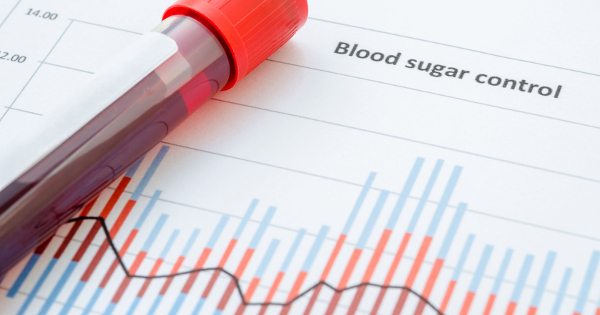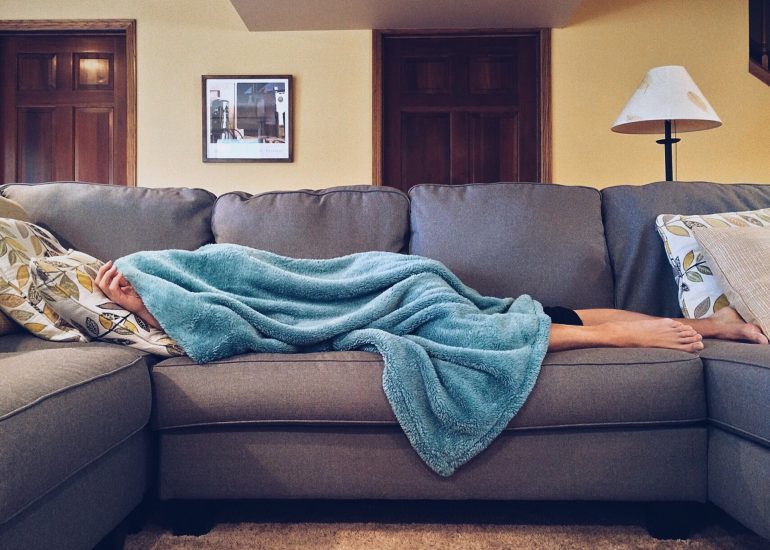Most of us don’t pay much attention to sleep. That is, we go to bed at night and wake up in the next morning. Seldom do we think about how much sleep we really need or get. As a result, most of aren’t getting the recommended 7 to 8 hours of sleep per night. And while we can operate on as little as 6 hours of sleep on a regular basis, it does take its toll on our bodies.
Negative Effects of Sleep Deprivation
- You’ll Gain Weight
Sleep plays an essential role in balancing your body’s hormones. Among them are your stress hormones and those responsible for regulating appetite. When you don’t get enough sleep, not only is your body more prone to gaining weight, it also increases your cravings.
In a 2008 study, researchers found that short sleepers (5-6 hours a night) and long sleepers (9-10 hours a night) were more likely to gain weight compared to those who got 7-8 hours sleep nightly.
During the 6-year period, short sleepers had a 35% higher chance of gaining 10 pounds more than normal sleepers. Similarly, those who slept 9-10 hours nightly had a 25% higher probability of gaining as much weight.
Conversely, better weight management is among the many health benefits of sleep.
- Higher Risk of Accidents
Not getting enough sleep also makes us more susceptible to making mistakes. This is why it isn’t a good idea to get behind the wheel when you’re sleep deprived. It can slow down your reflexes, or at times, make you fall asleep behind the wheel.
According to research, getting less than 6 hours of sleep increases your risk of getting into a car crash by 21%. Just as importantly, skimping on sleep during weekends also ups your risk of running off the road by 55%.
It’s worth noting that these accidents aren’t only limited to driving cars or riding bikes, they also include getting injured from slips and falls.
- Difficulty in Thinking and Concentration
In addition to its physical effects, sleep loss does a number on your mind as well. Our brains need sleep and lack of it can slow down cognition.
Research tells us that sleep loss affects your alertness and ability to focus. It also interferes with other cognitive abilities like memory and perception.
The good news is, a few nights of recovery sleep lets you get things back to normal.

- You’ll Get Sick Easily
Sleep is when your body recovers. During this time, it repairs damaged cells to get you back in top condition. This is why you feel refreshed after a good night’s rest.
Not getting enough sleep, on the other hand, weakens your body, in the process your immune system as well. This lowers your body’s resistance to viruses and germs. As a result, you’re more susceptible to colds and flu.
To see how lack of sleep affects our body’s defenses, scientists measured the levels of immune cells in healthy individuals who were asked to limit their sleep during a 48-hour period. Drawing blood every 24-hours, the researcher found that the sleep-deprived participants had lower levels of immunity. Interestingly, these levels returned to normal levels after sleep recovery.
- Lower Sex Drive
One thing that most people don’t know is that lack of sleep affects your sex drive. Both men and women are affected by this, though in different ways.
Men experience lower testosterone levels which cause them to lose their libido. Women, on the other hand, lose their desire for sex and have more difficulty in obtaining genital arousal.
- High Blood Pressure
Over the long term, sleep loss also takes its toll on your cardiovascular system. Among its ill effects are hypertension or high blood pressure, which in turn, puts a toll on your heart.
Studies show that sleep deprivation, short sleepers and those suffering from insomnia are more likely to develop high blood pressure. Scientists believe that this is because lack of sleep puts extra stress on your brain. As a result, it impairs your brain’s ability to function normally and compromises its ability to fight stress.

- Increased Risk of Diabetes
Besides high blood pressure, sleep loss also plays a number of your body’s ability to control blood sugar. Our brain needs sleep to help it properly regulate our hormones. When you don’t get enough sleep, it can cause your hormones to go out of whack.
Among those affected is insulin. This hormone helps your body control blood sugar by allowing glucose from your bloodstream to enter cells. When your body isn’t able to release enough insulin, glucose accumulates in your bloodstream causing high blood sugar.
Much like weight gain, too much or too little sleep isn’t good. A large-scale, long-term study found that those who slept 5 hours or less were more likely to develop Type 2 Diabetes. Similarly, sleeping 9 or more hours nightly also increases your risk.
- Mood Swings and Short Temper
Not getting enough sleep also makes most of us cranky and irritable. You’ll also be more moody and emotional.
One thing worth noting is that it takes a while for your body to fully recover from sleep loss.
A study published in the journal Sleep notes that some participants who slept 5 hours a night for 7 days needed more than 2 nights of 9 hours of recovery sleep to get back to their normal selves.
Thus, it’s important to get enough sleep or, make up for it as soon as possible. That’s because habitual sleep deprivation not only compounds the effects, it also increases your risk of depression.
What You Can Do to Avoid Sleep Deprivation
How much sleep you need is very subjective. Some people only need 5 or 6 hours per night to be fully refreshed. For most of us, 7 to 8 hours is the norm.
While there may be some instances where you have no choice but to go on less sleep, getting your 7-8 hours on a regular basis allows your body and mind to stay healthy.
Here are a few tips that will help you avoid sleep deprivation.
- Figure Out How Much Sleep You Need
This is the first step. To do so, start by counting backwards 8 hours from the time you need to get up in the morning. So, if you need to be up by 7:00 am, then try going to bed by 10:45 pm.
Don’t forget to add an allowance of 15 to 20 minutes. That’s the average amount of time it takes to fall asleep.
- Adjust You’re the Number of Hours Depending on How You Feel in the Morning
If you feel refreshed in the morning, that means 8 hours is ideal for you. But, if you wake up earlier or feel that you’ve overslept, try cutting it down by 30 minutes. On the other hand, if you still feel tired, try adding another 30 minutes.
- Improve Your Sleep Hygiene
Besides getting to bed on time, here are a few simple things can help improve how much sleep you get as well as your sleep quality. These include:
- Have a good mattress and pillows.
- Keep your bedroom dark.
- Stop working an hour before bedtime.
- That means no digital devices or email as well.
- Follow a nightly bedtime routine.
At the same time, you can also nap during the day or weekends to make up for any lost sleep. But, don’t nap too long or too late during the day.
Author Bio

Emma Lymn is the editor of Health Grinder. She is a proud mom of two who’s passionate about nutrition and health. Her mission is to help others eat better and lose weight to get healthier, as others have helped her learn to do so.






